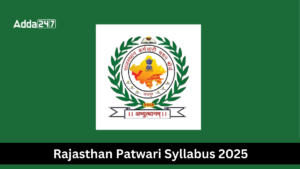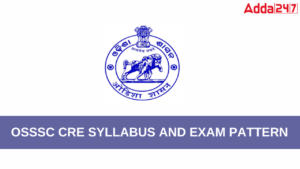The CA Foundation examination, formerly known as the CPT exam, is a crucial step for students aiming to become Chartered Accountants. Those preparing for the November/December 2024 exam should review the syllabus and exam pattern to perform well. The CA Foundation Syllabus 2024 is set by the Institute of Chartered Accountants and is available on its official website, @icai.org. This syllabus covers essential topics like taxation, auditing, and business law. Candidates are advised to check for any updates or changes. You can find the complete CA Foundation Syllabus 2024 in the article below.
CA Foundation Syllabus 2024
The CA Foundation is an entry-level exam that assesses candidates’ skills in subjects such as accounting, business, mathematics, law, and economics. Understanding the CA Foundation Syllabus 2024 and the exam pattern is essential for candidates to familiarize themselves with all relevant topics. The All India Institute of Chartered Accountants conducts this exam thrice a year, in January, June, and September. Only those who pass the CA Foundation exam can move on to the next stage of the Chartered Accountancy journey. By using the 2024 syllabus, aspirants can effectively prepare for the exam and increase their chances of success.
| CA Foundation Syllabus 2024 Highlights | |
|---|---|
| Exam Name | CA Foundation (CPT) |
| Conducted By | Institute Of Chartered Accountants of India (ICAI) |
| Exam Mode | Official |
| Exam Frequency | Thrice a year: January, June, and September |
| Exam Level | National Level |
| No. of Papers | Total 4
|
| Paper Names |
|
| Exam Duration |
|
| Maximum Marks for Each Paper | 100 |
| Total Marks for All Papers | 400 |
| Negative Marking |
|
| Exam Medium | English and Hindi except for Section B of Paper 2 |
CA Foundation Syllabus 2024 Overview
According to the latest CA Foundation Syllabus 2024 and exam format, candidates need to focus on four papers while preparing for the exam. Each paper will carry 100 marks. Candidates can check the detailed CA Foundation Syllabus, here:
| Sl. No | Paper Name | Marks | Type of Questions |
|---|---|---|---|
| Paper 1 | Accounting | 100 Marks | Subjective |
| Paper 2 | Business Laws | 100 Marks | Subjective |
| Paper 3 | Quantitative Aptitude: | 100 Marks | Objective |
| Part A: Business Mathematics | Part A: 40 Marks | ||
| Part B: Logical Reasoning | Part B: 20 Marks | ||
| Part C: Statistics | Part C: 40 Marks | ||
| Paper 4 | Business Economics | 100 Marks | Objective |
CA Foundation Paper-Wise Syllabus 2024
There are a total of 4 papers for the CA Foundation exam. To clear all the papers, candidates need to thoroughly revise the syllabus. The paper-wise CA Foundation Syllabus 2024 is given below for the candidates.
Paper 1: Accounting
The main aim of Paper 1 is to help candidates learn fundamental accounting concepts and principles to solve basic accounting problems and make financial statements.
| Topics | Sub-Topics |
|---|---|
| Theoretical Framework | Meaning and Scope of Accounting. |
| Accounting concepts, principles, and conventions. | |
| Capital and revenue expenditure, capital and revenue receipts, contingent assets, and contingent liabilities. | |
| Accounting Policies. | |
| Accounting as a measurement discipline – valuation principles, accounting estimates. | |
| Accounting Standards – concepts and objectives. | |
| Accounting Process | – Recording accounting transactions: principles of double entry book-keeping, books of original entry (journal, subsidiary books, cash book). |
| Ledger format, posting from journals and subsidiary books, balancing accounts. | |
| Preparation of Trial Balance. | |
| – Rectification of Errors. | |
| Bank Reconciliation Statement | Introduction, reasons, and preparation of bank reconciliation statement. |
| Inventories | Meaning, basis, and technique of inventory valuation, cost of inventory, net realizable value, and record system. |
| Depreciation and Amortisation | Tangible and intangible assets: meaning & difference, concepts, methods of computation, and accounting treatment. |
| Change in depreciation method. | |
| Bills of Exchange and Promissory Notes | Meaning of bills of exchange and promissory notes and their accounting treatment; accommodation bills. |
| Preparation of Final Accounts of Sole Proprietors | Elements of financial statements, closing adjustment entries, trading accounts, profit and loss accounts, and balance sheets of manufacturing and non-manufacturing entities. |
| Financial Statements of Not-for-Profit Organizations | Significance and preparation of receipt and payment account, income and expenditure account, and balance sheet. |
| Difference between profit and loss account, and income and expenditure account. | |
| Accounts from Incomplete Records | Excluding preparation of accounts based on ratios. |
| Partnership and LLP Accounts | Final accounts of partnership firms and LLP. |
| Admission, retirement, and death of a partner including treatment of goodwill. | |
| Dissolution of partnership firms and LLPs including piecemeal distribution of assets. | |
| Company Accounts | Definition of shares and debentures. |
| Issue of shares and debentures, forfeiture of shares, reissue of forfeited shares. | |
| Redemption of preference shares and debentures (excluding purchase and redemption of own debentures sinking fund method). | |
| Accounting for bonus issues and right issues. |
Paper 2: Business Law
| Topics | Sub-Topics |
|---|---|
| Indian Regulatory Framework | Major Regulatory Bodies: Ministry of Finance, Ministry of Corporate Affairs, SEBI, RBI, IBBI, Ministry of Law and Justice, etc. |
| The Indian Contract Act, 1872 | General Nature of Contract |
| Consideration | |
| Other Essential Elements of a Valid Contract | |
| Performance of Contract | |
| Breach of Contract | |
| Contingent and Quasi Contract | |
| Contract of Indemnity and Guarantee | |
| Contract of Bailment and Pledge | |
| Contract of Agency | |
| The Sale of Goods Act, 1930 | Formation of the Contract of Sale |
| Conditions and Warranties | |
| Transfer of Ownership and Delivery of Goods | |
| Unpaid Seller and His Rights | |
| The Indian Partnership Act, 1932 | General Nature of Partnership |
| Rights and Duties of Partners | |
| Reconstitution of Firms | |
| Registration and Dissolution of a Firm | |
| The Limited Liability Partnership Act, 2008 | Introduction: Nature and Scope |
| Essential Features | |
| Characteristics of LLP | |
| Incorporation | |
| Differences with Other Forms of Organizations | |
| The Companies Act, 2013 | Essential Features of a Company |
| Corporate Veil Theory | |
| Classes of Companies | |
| Types of Share Capital | |
| Incorporation of a Company | |
| Memorandum of Association | |
| Articles of Association | |
| Doctrine of Indoor Management | |
| The Negotiable Instruments Act, 1881 | Meaning of Negotiable Instruments |
| Characteristics | |
| Classification of Instruments | |
| Different Provisions Relating to Negotiation | |
| Presentment of Instruments | |
| Rules of Compensation |
Paper 3: Quantitative Aptitude
In this section, candidates understand the fundamental concepts of mathematics and statistics and their relation to Business, Finance, and economics. It also focuses on improving the logical reasoning abilities of candidates. There are a total of 3 parts in this paper.
Part A- Business Mathematics
Candidates can check the topics covered in the business mathematics section, here.
| Topics | Sub-Topics |
|---|---|
| Part A: Business Mathematics | |
| Ratio and Proportion, Indices and Logarithms | – Ratio and proportion and Time and work-related problems |
| – Laws of Indices | |
| – Exponents and Logarithms | |
| – Anti-Logarithms | |
| Equations | – Linear Equations up to Three Variables |
| – Quadratic and Cubic Equations in One Variable | |
| – Applications in Business Related Problems | |
| Linear Inequalities | – Linear Inequalities in One and Two Variables |
| – The Solution Space | |
| Mathematics of Finance | – Simple Interest |
| – Compound Interest | |
| – Nominal and Effective Rate of Interest | |
| – Present Value | |
| – Net Present Value | |
| – Future Value | |
| – Perpetuity | |
| – Annuities | |
| – Sinking Funds | |
| – Calculating EMI | |
| – Calculations of Returns: Nominal and Effective Rate of Return | |
| – Compound Annual Growth Rate (CAGR) | |
| Permutations and Combinations | – Basic Concepts of Permutations and Combinations |
| – Introduction, The Factorial | |
| – Permutations, Results, Circular Permutations | |
| – Permutations with Restrictions | |
| – Combinations with Standard Results | |
| Sequence and Series | – Introduction to Sequences and Series |
| – Arithmetic and Geometric Progression | |
| – Relationship between Arithmetic Mean (AM) and Geometric Mean (GM) | |
| – Sum of Terms of Special Series and Business Applications | |
| Sets, Relations, and Functions | – Basics of Limits and Continuity |
| Basic Applications of Differential and Integral Calculus | – Basic Applications in Business and Economics (Excluding Trigonometric Applications) |
Part B: Logical Reasoning
This part carries 20 marks. The topics that are in this part of the competitive exam are listed below:
- Number Series
- Coding and Decoding, and Odd Man Out
- Direction Tests
- Seating Arrangements
- Blood Relations
Part C- Statistics
The statistics section of the CA Foundation carries 40 marks. The following table contains the topics covered in this part:
| Topics | Sub-Topics |
|---|---|
| Statistical Representation of Data | – Diagrammatic Representation of Data |
| – Frequency Distribution | |
| – Graphical Representation of Frequency Distribution: Histogram, Frequency Polygon, Ogive, Pie-chart | |
| Sampling | – Basic Principles of Sampling Theory |
| – Comparison between Sample Survey and Complete Enumeration | |
| – Important Terms Associated with Sampling | |
| – Types of Sampling | |
| – Sampling and Non-Sampling Errors | |
| Measures of Central Tendency and Dispersion | – Mean |
| – Median | |
| – Mode | |
| – Mean Deviation | |
| – Quartiles and Quartile Deviation | |
| – Standard Deviation | |
| – Coefficient of Variation | |
| – Coefficient of Quartile Deviation | |
| Probability | – Independent and Dependent Events |
| – Mutually Exclusive Events | |
| – Total and Compound Probability | |
| – Bayes Theorem | |
| Theoretical Distributions | – Random Variables |
| – Discrete and Continuous Random Variables | |
| – Expectation of a Discrete Random Variable | |
| – Theoretical Distributions: Binomial Distribution, Poisson Distribution (Basic Application), Normal Distribution (Basic Applications) | |
| Correlation and Regression | – Scatter Diagram |
| – Karl Pearson’s Coefficient of Correlation | |
| – Rank Correlation | |
| – Regression Lines | |
| – Regression Equations | |
| – Regression Coefficients | |
| Index Numbers | – Uses of Index Numbers |
| – Problems Involved in the Construction of Index Numbers | |
| – Methods of Construction of Index Numbers | |
| – BSE SENSEX, NSE |
Paper 4: Business Economics
Business Economics paper for the CA Foundation exam is conducted with the objective of understanding the key theories and concepts of Business Economics and how to apply them practically.
| Topics | Sub-Topics |
|---|---|
| Introduction to Business Economics | – Meaning and Scope of Business Economics |
| – Basic Problems of an Economy and the Role of Price Mechanism | |
| Theory of Demand and Supply | – Meaning and Determinants of Demand |
| – Law of Demand and Elasticity of Demand – Price, Income, and Cross Elasticity | |
| – Theory of Consumer’s Behaviour – Indifference Curve Approach | |
| – Meaning and Determinants of Supply | |
| – Law of Supply and Elasticity of Supply | |
| – Market Equilibrium and Social Efficiency | |
| Theory of Production and Cost | – Meaning and Factors of Production |
| – Short Run and Long Run | |
| – Law of Production – The Law of Variable Proportions and Laws of Returns to Scale | |
| – Producer’s Equilibrium | |
| – Concepts of Costs – Short-Run and Long-Run Costs, Average and Marginal Costs, Total, Fixed, and Variable Costs | |
| Price Determination in Different Markets | – Market Structures: Perfect Competition, Monopoly, and Monopolistic Competition |
| – Using Game Theory to Study Oligopoly | |
| – Price Determination in these Markets | |
| – Price-Output Determination under Different Market Forms | |
| Determination of National Income | – Macro Economic Aggregates and Measurement of National Income |
| – Determination of National Income: Keynes’ Two Sector Basic Model, Three Sectors, and Four Sectors Models | |
| Business Cycles | – Meaning, Phases, Features, and Causes behind these Cycles |
| Public Finance | – Fiscal Functions: An Overview, Centre, and State Finance |
| – Market Failure and Government Intervention to Correct Market Failure | |
| – Process of Budget Making: Sources of Revenue, Expenditure Management, and Management of Public Debt | |
| – Fiscal Policy | |
| Money Market | – Concept of Money Demand |
| – Important Theories of Demand for Money | |
| – Concept of Money Supply | |
| – Cryptocurrency and Other New Terminologies | |
| – Monetary Policy | |
| International Trade | – Theories of International Trade including Theories of Intra-Industry Trade (Krugman) |
| – Trade Policy – The Instruments of Trade Policy | |
| – Trade Negotiations | |
| – Exchange Rates and Its Economic Effects | |
| – International Capital Movements: Foreign Direct Investment | |
| Indian Economy | – Before 1950 – Chanakya and Nand Vansh |
| – OECD Paper (1950-1991) | |
| – Basic Knowledge 1991 Onwards |
CA Foundation New Syllabus 2024 PDF Free Download
The Institute of Chartered Accountants of India (ICAI) has released the CA Foundation New Syllabus 2024 PDF on its official website, icai.org, as part of the updated educational and training system. Candidates preparing for the exam should familiarize themselves with the new additions and changes in the syllabus. You can download the CA Foundation New Syllabus 2024 PDF using the direct link provided below.
CA Foundation Subjects 2024
Principles and Practice of Accounting:
- This paper covers basic concepts and principles of accounting.
- Topics include the preparation of financial statements, partnership accounts, and company accounts.
Business Laws and Business Correspondence and Reporting:
Section A: Business Laws:
- Topics include the Indian Contract Act, the Sale of Goods Act, the Indian Partnership Act, and the Companies Act.
Section B: Business Correspondence and Reporting:
- This section focuses on developing writing skills and comprehension abilities in a business context, including formal letters, reports, and communication skills.
Business Mathematics, Logical Reasoning, and Statistics:
Section A: Business Mathematics:
- Covers topics like ratios, proportions, indices, logarithms, and sets.
Section B: Logical Reasoning:
- Includes problems on seating arrangements, logical sequences, syllogisms, and puzzles.
Section C: Statistics:
- Involves measures of central tendency and dispersion, probability, and index numbers.
Business Economics and Business and Commercial Knowledge:
Section A: Business Economics:
- Focuses on basic concepts of microeconomics and macroeconomics, including the theory of demand and supply, production and cost, price determination, and national income.
Section B: Business and Commercial Knowledge:
- Covers the basics of business and commercial knowledge, including an understanding of business environments and organizations.
CA Foundation Syllabus 2024 Preparation Tips
Clearing the CA Foundation exam is not an easy task. Candidates need to prepare really hard to qualify for the exam. Some of the tips that can help candidates prepare more effectively for the exam are:
- Go through the complete CA Foundation Syllabus 2024 and exam pattern.
- Plan an efficient and smart preparation strategy and set realistic goals.
- Start preparing for the exam as soon as possible and cover all the subjects,
- Make short notes for quick revision and practice regularly.
| Imp Links Related to the CA Foundation 2024 Exam | |
| CA Foundation 2024 | CA Foundation Admit Card 2024 |
| CA Foundation Eligibility 2024 | CA Foundation Pass Percentage 2024 |




 TNPSC Group 4 Syllabus 2025 and Exam Pat...
TNPSC Group 4 Syllabus 2025 and Exam Pat...
 Rajasthan Patwari Syllabus 2025 and Exam...
Rajasthan Patwari Syllabus 2025 and Exam...
 OSSSC CRE Syllabus 2025 Prelims and Main...
OSSSC CRE Syllabus 2025 Prelims and Main...
 Adda247 Job portal has complete information about all Sarkari Jobs and Naukri Alerts, its latest recruitment notifications, from all state and national level jobs and their updates.
Adda247 Job portal has complete information about all Sarkari Jobs and Naukri Alerts, its latest recruitment notifications, from all state and national level jobs and their updates.